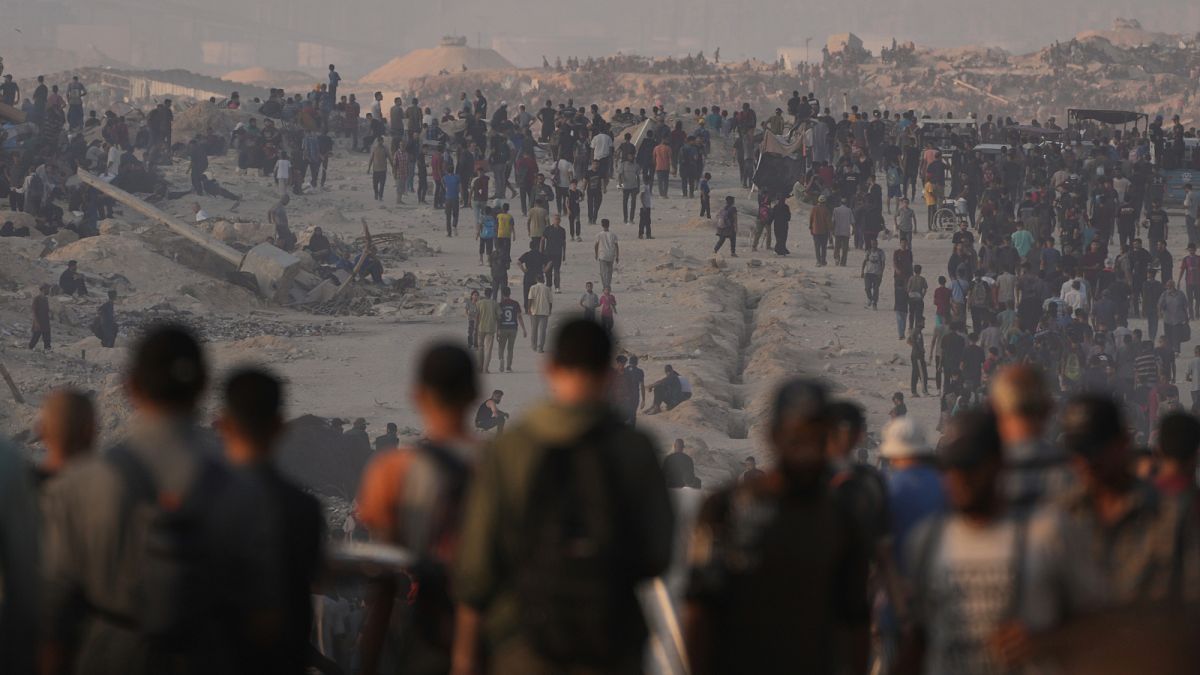

Amid the backdrop of ongoing global efforts to stabilize regions fraught with conflict, the world watches as new developments unfold in Gaza, Ukraine, and the border region between Thailand and Cambodia. Each theater presents unique challenges and opportunities for peace, requiring a careful balance of diplomacy and humanitarian assistance.
In Gaza, the humanitarian crisis remains a critical concern, as recent hostilities have exacerbated the dire conditions for its residents. According to reports from the Shifa hospital, at least 25 individuals have tragically lost their lives, primarily due to gunfire as they waited for much-needed aid near the Zikim crossing with Israel. The World Health Organization has issued urgent calls for sustained efforts to deliver food to the region, with recent Israeli military actions purportedly ceasing in a tactical pause to address the mounting pressure over hunger. Despite these pauses, the toll continues to rise, with reports indicating further casualties near aid distribution centers in Khan Younis, Rafah, and central Gaza. The international community advocates for a renewed focus on humanitarian corridors and peaceful negotiation efforts to alleviate the suffering and bring lasting stability to the area.
Simultaneously, in Eastern Europe, Ukraine is steadfast in its resolve against Russia’s aggressive maneuvers. President Volodymyr Zelenskyy has characterized the current situation on the front lines as arduous for both sides, underscoring the need for enhanced defense measures such as additional Patriot missile systems. This comes as Ukraine strives to fortify its air defenses against a potent summer offensive from Russia. President Zelenskyy’s appeal highlights a broader aspiration among Ukrainian leaders to garner international support, not only in arms but in fostering diplomatic engagement aimed at de-escalating tensions and securing a peaceful resolution.
Meanwhile, in Southeast Asia, the border clashes between Thailand and Cambodia underscore the complex interplay of historical grievances and personal disputes shaping contemporary geopolitics. Despite assertions from former U.S. President Donald Trump regarding imminent ceasefire talks, hostilities persist. Leaders from both nations are scheduled to convene in Malaysia for diplomatic discussions, encouraged by Malaysian Prime Minister Anwar Ibrahim’s invitation. The intricate history of the nations’ border dispute, accentuated by the once-close personal relationship between political figures Hun Sen of Cambodia and Thaksin Shinawatra of Thailand, offers both a backdrop and a barrier to achieving a swift end to current tensions. Observers hope that mutual interests in regional stability will propel an effective diplomatic resolution during this important dialogue.
The international community remains vigilant, recognizing that each of these conflicts presents significant humanitarian implications that necessitate immediate and considered responses. With each region’s distinct set of challenges come potential pathways for peace, urging global leaders and organizations to engage thoughtfully and decisively in nurturing dialogue, extending aid, and supporting peaceful arrangements. These efforts emphasize the shared responsibility in fostering peace and stability worldwide.
Source: {link}
